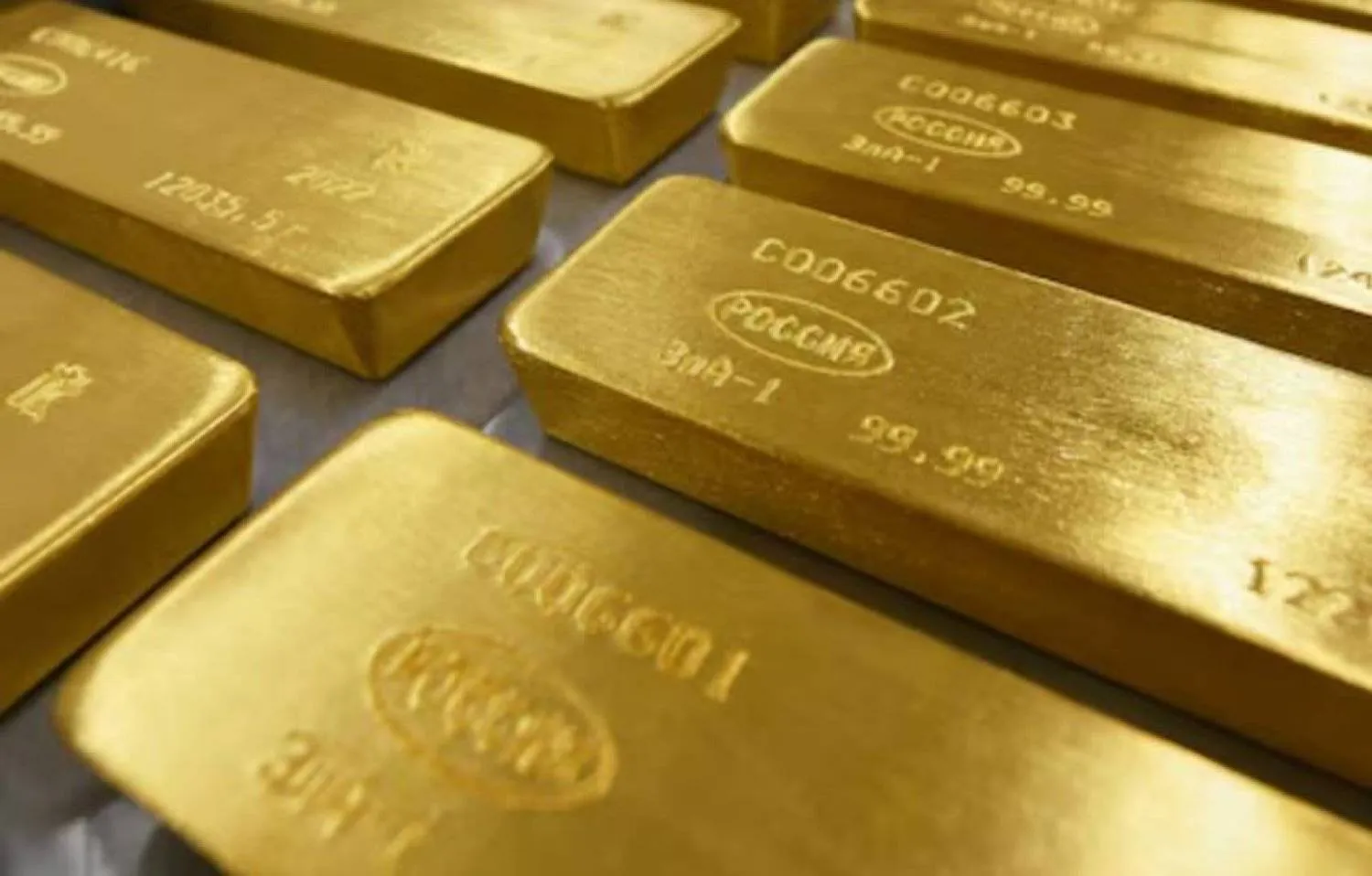Gold prices held steady on Monday after data showed US inflation subsided in May, bolstering hopes that the Federal Reserve will start cutting interest rates this year.
Spot gold was nearly unchanged at $2,325.49 per ounce, as of 0716 GMT. Prices registered a more than 4% gain in the second quarter, Reuters said.
US gold futures eased 0.2% to $2,334.80.
Data on Friday showed that the US personal consumption expenditures index increased 2.6% in the 12 months through May after advancing 2.7% in April, while inflation readings for the month were in line with economists' expectations.
"The latest US inflation data remain fresh on investors' mind, with the data coming in line with consensus and generally did little to sway current market rate expectations for the Fed's easing process to kickstart in September," said IG market strategist Yeap Jun Rong.
But, "any failure to defend the $2,280 level ahead may potentially pave the way for gold prices to head towards the $2,200 next".
Market now expect a 64% chance of the Fed cutting interest rates in September, unchanged from before the data, as well as another cut in December.
Lower interest rates reduce the opportunity cost of holding non-yielding bullion.
Investor focus now shifts to remarks from Fed Chair Jerome Powell on Tuesday, followed by minutes from the Fed's latest policy meeting on Wednesday and US labor market data later in the week.
Meanwhile, ANZ analysts in a note said that "although central bank purchases have slowed down in recent months, we believe emerging market's central banks will continue to diversify their reserves into gold."
Spot silver was flat at $29.12, platinum rose 0.3% to $996.12 and palladium gained 0.6% at $978.46.
Key metals consumer China's manufacturing activity grew at its fastest pace in more than three years, a private sector survey showed. This contrasts with an official PMI released on Sunday that showed a decline in manufacturing activity.
Gold Holds Ground as Slowing Inflation Boosts Fed Rate Cut Bets

Marked ingots of 99.99 percent pure gold are placed in a cart at the Krastsvetmet non-ferrous metals plant in the Siberian city of Krasnoyarsk, Russia March 10, 2022. REUTERS/Alexander Manzyuk/File Photo

Gold Holds Ground as Slowing Inflation Boosts Fed Rate Cut Bets

Marked ingots of 99.99 percent pure gold are placed in a cart at the Krastsvetmet non-ferrous metals plant in the Siberian city of Krasnoyarsk, Russia March 10, 2022. REUTERS/Alexander Manzyuk/File Photo
لم تشترك بعد
انشئ حساباً خاصاً بك لتحصل على أخبار مخصصة لك ولتتمتع بخاصية حفظ المقالات وتتلقى نشراتنا البريدية المتنوعة







